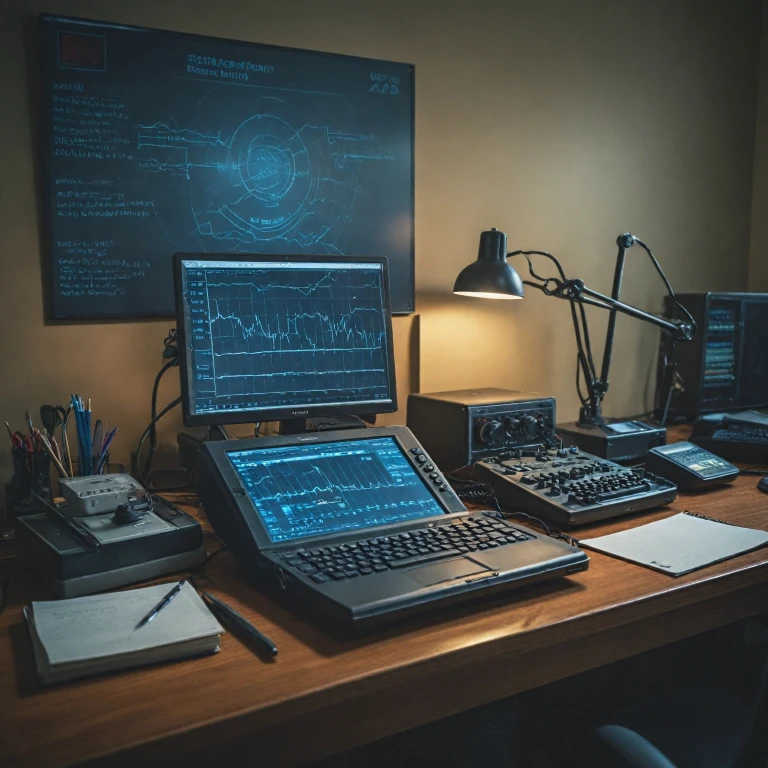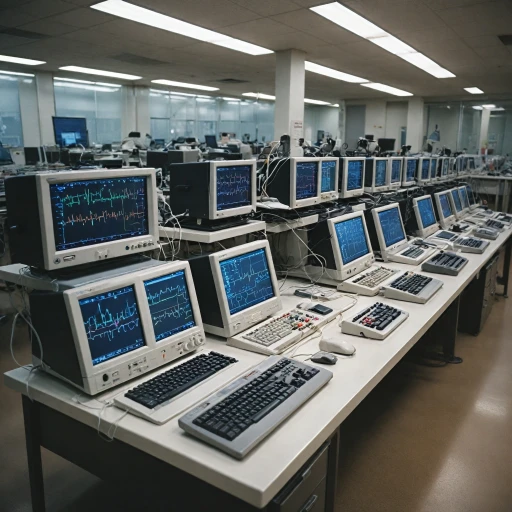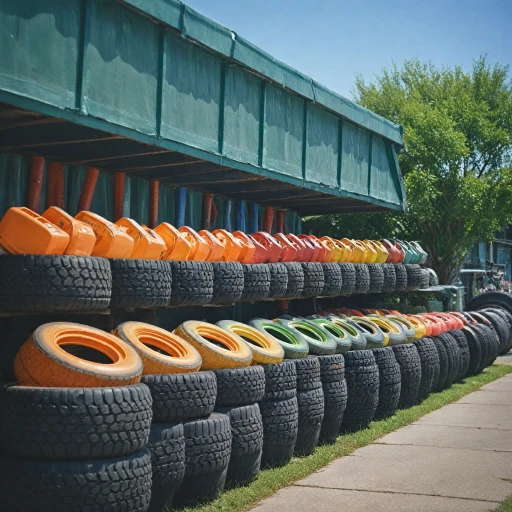
Understanding Lie Detector Equipment
Introduction to Lie Detector Equipment
The realm of lie detector equipment, often known as polygraph systems, is vast and multifaceted. These machines are designed to analyze physiological responses to questions, aiding professionals in discerning the truthfulness of the subject. A polygraph instrument is comprised of various components, each tasked with measuring specific bodily changes which are typically involuntary. These changes can include aspects such as heart rate, breathing patterns, and skin conductance. Experts in this field, known as polygraph examiners, interpret the data to ascertain the veracity of the responses.
Components and Uses
A polygraph machine typically includes sensors that are attached to the subject's body to record data during the detector test. The examiner asks a series of questions to establish a baseline before proceeding with the real test lie questions. Polygraph instruments are predominately used by law enforcement and security agencies in the United States. They offer key insights during investigations, providing an additional layer of analysis beyond traditional interview techniques.
Scope of Application
The application of lie detection extends beyond criminal investigations. Polygraph tests can be relevant in various professional scenarios such as pre-employment screenings for security-sensitive positions. Furthermore, these instruments are sometimes explored by those curious about personal truth verification, although use in personal settings should be approached with caution, as the data interpretation requires professional expertise.
For those considering investing in such gadgets for professional or personal use, it's crucial to delve into the market thoroughly. Understanding the nuances and specifications of different models is paramount, just as one would research the market for quality bicycles, such as Brooklyn Machine Works bikes, ensuring that the chosen polygraph system meets specific needs.
Key Features to Consider
Identifying the Essential Features
When shopping for lie detector equipment, understanding the key features to consider can significantly impact the effectiveness and accuracy of the polygraph test. The core of any polygraph system lies in its ability to meticulously gather and interpret data to determine the reliability of the subject's responses. Here's what you need to focus on:
- Data Accuracy: High-precision sensors are crucial to ensure accurate readings. Professional-grade instruments often provide the most reliable data, making them a preferred choice for both security and law enforcement applications.
- Question Flexibility: A good polygraph machine will offer the ability to customize questions. This flexibility is necessary for the examiner to tailor the test to the specific needs of the case.
- Comprehensive System: A robust polygraph system will include various instruments such as respiration monitors, galvanic skin response sensors, and pulse oximeters, which together provide a holistic view of physiological responses.
- Examiner Interface: An intuitive interface for the polygraph examiner can make a significant difference in managing tests efficiently. Look for user-friendly software that offers clear data visualization and reporting capabilities.
Ultimately, your choice of polygraph test instruments will depend on your specific requirements. Whether it's for a security role or a private investigation, these features will serve as a guiding factor in making an informed decision. Explore more insights on Brooklyn Machine Works Bikes to understand how features can differ across products, just as they do in lie detection technology.
Evaluating Different Brands and Models
Comparing Lie Detector Brands and Models: Key Considerations
When exploring the wide array of polygraph machines available in the market, it’s imperative to invest time in evaluating different brands and models. The polygraph instruments and systems vary greatly, not only in terms of price but also in functionality and reliability. This is an essential step for professionals who need dependable tools for accurate readings during detector tests. Several factors come into play when evaluating these instruments. Here's a closer look at some of the crucial aspects that can guide your decision:- Technology and Precision: The heart of any effective polygraph test lies in the precision of the polygraph instrument. Look for machines that offer advanced sensors and data capture capabilities. An accurate detector machine should provide detailed data that can be used in a lie detection test to assess the subject's responses reliably.
- Ease of Use and Interface: Assess the user-friendliness of the machine. A well-designed interface can significantly improve the examiner’s ability to navigate through the system during real-time tests. Some modern devices even offer USB connectivity, making data management easier.
- Reliability and Durability: It’s vital to invest in durable polygraph machines that withstand rigorous professional use. A well-built system can save considerable time and money, reducing the opportunity for malfunctions during crucial detector tests.
- Reputation and Reviews: Research on models that have garnered positive reviews from experienced polygraph examiners and law enforcement professionals. Peer feedback is a valuable source of real-world data on the instrument's effectiveness and reliability.
- Additional Features and Gadgets: Evaluate whether the machine includes any additional spy gadgets or metal detector functions, which might add value depending on your specific needs.
- Compliance with Legal Standards: Always ensure that any detector mentiras system is compliant with the legal and ethical standards within the United States, as legal considerations can impact which brands are suitable for your use.
Legal and Ethical Considerations
Legal and Ethical Aspects in Using Lie Detectors
When it comes to utilizing polygraph instruments, commonly known as lie detectors, in a professional setting, understanding the legal landscape is crucial. The application of these gadgets varies significantly across different regions, and knowing the law can make or break their effective use. Different jurisdictions have distinct regulations regarding the use of polygraph machines. For example, in the United States, the Employee Polygraph Protection Act restricts the use of lie detector tests in private employment, with certain exceptions for security and law enforcement purposes. This highlights the importance of knowing how and when an examiner can legally administer a test lie. In settings where polygraph tests are permitted, they must be conducted by a licensed polygraph examiner within the framework of established legal guidelines. Ensuring that the subject understands and consents to the process is a key ethical consideration. The examiner must also ensure the data collected is confidential and used solely for the intended real purpose, bolstering trust in the process. Ethically, the potential impact on the subject's life and career demands careful consideration. The reliability rate of a polygraph system isn't absolute, often leading to debates over their real efficacy and the emotion-driven factors involved in detector tests. Ensuring an informed approach to lying detection can help uphold the integrity of the process. Furthermore, consider the broader moral implications of employing such instruments. While the opportunity to maintain security is vital, balancing that with individual rights ensures that the application of lie detectors aligns with ethical standards. In summary, the legal and ethical landscape surrounding polygraph tests calls for meticulous evaluation. Stay informed on the laws applicable in your region and adhere to ethical practices to ensure the effective, respectful use of lie detectors.Pricing and Budgeting Tips
Budgeting for Your Polygraph Equipment
When it comes to purchasing a polygraph machine, understanding the cost implications is crucial. The price of lie detector equipment can vary significantly based on several factors, including the brand, model, and features. Here are some tips to help you budget effectively:
- Determine Your Needs: Before setting a budget, identify the specific features you require. Whether you need a basic polygraph instrument for simple tests or a more advanced system for professional use, knowing your needs will guide your spending.
- Compare Brands and Models: As discussed earlier, evaluating different brands and models can provide insight into pricing. Some brands may offer more affordable options without compromising on quality, while others might provide premium features at a higher cost.
- Consider Long-term Costs: Beyond the initial purchase price, consider the long-term costs associated with maintenance, calibration, and potential upgrades. A reliable polygraph system might require regular servicing to ensure accuracy and reliability.
- Look for Deals and Discounts: Keep an eye out for promotions or discounts from suppliers. Occasionally, you might find opportunities to purchase high-quality equipment at reduced rates.
- Explore Financing Options: If the upfront cost is a concern, explore financing options. Some suppliers offer payment plans that allow you to spread the cost over time, making it easier to manage your budget.
By carefully considering these factors, you can make an informed decision that aligns with your financial constraints while ensuring you acquire a reliable lie detection instrument.
Where to Find Lie Detector Equipment for Sale
Locating Trusted Sources for Lie Detector Machines
When it comes to acquiring a reliable polygraph system, several avenues exist for professionals seeking to make a purchase. Understanding lie detector equipment and recognizing key features is crucial before embarking on this journey. Here’s a guide on where to begin your search:- Authorized Dealers and Manufacturers: The most trustworthy option for obtaining quality polygraph instruments is purchasing directly from manufacturers or their authorized dealers. By doing so, you ensure the authenticity of your polygraph test machine and gain access to professional support and maintenance services. Look for dealers who offer comprehensive guides on instrument use and the latest advancements in lie detection.
- Online Marketplaces: Various e-commerce platforms offer polygraph machines, but they require thorough scrutiny to ensure the legitimacy of the seller. Verify user reviews and ratings to gauge credibility. Beware of counterfeit gadgets that might not perform real lie detector tests accurately.
- Specialized Security and Law Enforcement Suppliers: Suppliers specializing in security or law enforcement equipment often provide a range of polygraph instruments designed for professional use. These suppliers are usually knowledgeable about the legal and ethical considerations governing the use of lie detection systems.
- Used Equipment Vendors: Buying pre-owned polygraph test machines can be cost-effective. However, it is important to assess the condition and calibration of the instruments. Engaging with a seasoned polygraph examiner or a professional who can evaluate the equipment is advisable to ensure its functionality.













